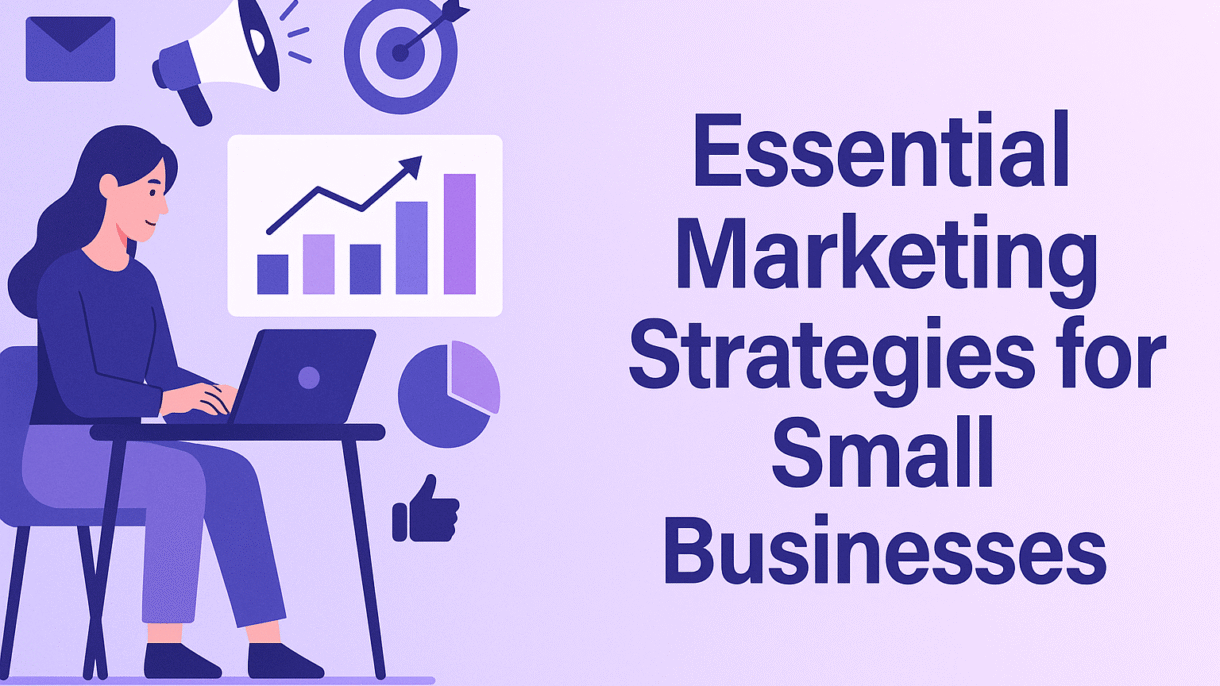Marketing can feel overwhelming for small business owners, especially with limited time and resources. But the truth is, you don’t need a massive budget to market effectively—you just need the right strategy. Whether you’re offering services, selling products, or building your brand, this guide outlines powerful and practical marketing tactics to help you grow.
- Define Your Target AudienceMarketing without a clear audience is like shooting in the dark. You need to know:
Who your ideal customer is
What problems they need solved
Where they spend their time online
How they prefer to consume content
Build customer personas to guide your messaging and strategy. - Build a Professional WebsiteYour website is your digital storefront. Make sure it:
Loads quickly
Works on mobile
Clearly communicates what you offer
Includes strong CTAs (book, contact, buy now)
Is SEO-friendly (keywords, meta tags, content structure)
Use WordPress and a visual builder like Elementor for a cost-effective, professional setup. - Start with Local SEOIf you’re a local business, optimize your online presence for local searches:
Set up a Google Business Profile
Add your business to local directories
Collect Google reviews
Use location-based keywords
Example: “best English tutor in Dubai” or “affordable web designer UAE.” - Create and Share Valuable ContentStart a blog, write helpful guides, or create short videos. Focus on:
Solving common problems
Answering FAQs
Sharing client success stories
Teaching something useful
This builds authority and improves search rankings over time. - Use Email Marketing to Stay ConnectedEmail remains one of the highest ROI marketing tools. You can:
Collect leads using website forms or free downloads
Send monthly newsletters
Promote new services, discounts, or blog posts
Automate follow-ups to leads or past clients
Tools: Mailchimp, ConvertKit, or MailerLite. - Leverage Social Media StrategicallyDon’t try to be everywhere. Focus on 1–2 platforms where your audience actually engages.
Instagram: Great for visuals and behind-the-scenes
Facebook: Good for local reach and groups
LinkedIn: Best for B2B and professional services
Post consistently, use hashtags, and engage with comments. - Offer Free Value FirstBuild trust before selling. Offer:
Free consultations
Downloadable resources
Tips via social media or email
Free webinars or live Q&A sessions
This warms up your audience and encourages future conversions. - Collaborate and Cross-PromoteTeam up with other businesses to reach new audiences:
Share each other’s content
Co-host giveaways
Offer bundled services or promotions
Win-win partnerships can multiply your visibility without spending extra. - Track Your Marketing ResultsUse analytics tools to measure what works:
Google Analytics (website traffic)
Google Search Console (SEO performance)
Email open/click rates
Social media insights
This helps you double down on what works and stop wasting time. - Be Consistent, Not PerfectConsistency builds brand awareness and trust. You don’t have to post daily or go viral—just show up, offer value, and improve over time.
How I Help Small Businesses GrowAs a marketing strategist and web designer, I help small businesses create websites, content, and campaigns that actually convert. My services include:
WordPress design tailored to your brand
SEO setup and blog writing
Social media strategy
Email marketing support
Let’s work together to turn your vision into results. Contact me today for a custom plan.
Conclusion
You don’t need to do everything to grow—you just need to do the right things consistently. Start where you are, focus on your audience, and use these strategies to build visibility, trust, and growth step by step.
FAQsQ: What’s the best marketing strategy for a small business on a tight budget?A: Focus on local SEO, social media, and email marketing—they’re free or low-cost but highly effective.
Q: How soon will I see results?A: Some tactics like Google listings and email marketing can show results in weeks; SEO and content take longer but are worth it.
Q: Should I do everything myself?A: Start with what you can manage, then outsource or consult experts as you grow.

